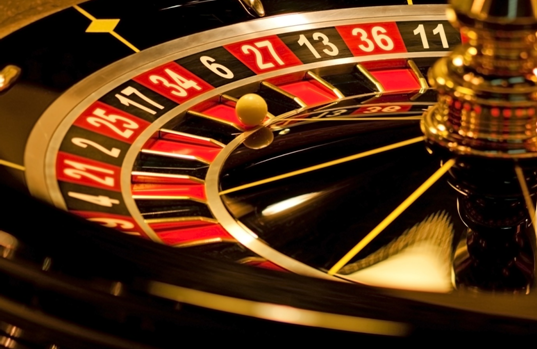Why Are Casinos Such Popular Settings for Movies?
Throughout the history of cinema, writers and directors have always been on the lookout for dramatic places in which to set the action. After all, with a big screen to fill there has always been plenty of scope for the spectacular. From the wide-open landscapes of the desert scenes in films like Lawrence of Arabia to the infinite abyss of space in ones like Gravity, we have seen a huge variety of backdrops.
But there is another, very much internal, location that has always been a big favourite with film-makers: the casino.
There may be many reasons for this but, at the heart of it, there’s the fact that when we watch a movie we like to be transported away from the everyday into places and situations that are exceptional in some way. With the glamour, bright lights and larger-than-life characters that inhabit them, casinos fulfil this requirement perfectly.
To see just how very popular casinos are for film-makers one only has to look at some of the best gambling movies on Netflix – you can find a list of them here – to see that they also cross a number of genres.
This is because scenes in casinos can offer countless opportunities to bring out plot points and even enhance character development in a way that is undeniably involving to watch.
Drama all the way
When we’re talking about movies that involve casinos there’s one iconic star of cinema who springs to mind immediately – James Bond. In almost every single one of the 26 007 movies to date there has been a scene in which James dons the tuxedo and heads for the tables. Perhaps the most dramatic of these came in Daniel Craig’s first outing as the superspy in Casino Royale. Who can forget his nerve-shredding encounter over the poker table with Le Chiffre in which he overcomes cheating and a near-fatal poisoning to prevail?
A more subtle use of the casino as a backdrop to drama comes in Mike Figgis’ 1995 movie Leaving Las Vegas in which Nicolas Cage plays a washed-up, alcoholic Hollywood screenwriter who heads to Vegas to drink himself to death. The bright, vibrant backdrop creates a shocking contrast to the tragedy that unfolds throughout the movie.
Cash on demand
Of course, on a more practical level, casinos offer characters in need of quick cash a way to get it while also including considerable drama in the process. This was shown to brilliant effect in Rain Man in which Tom Cruise’s character exploits his autistic brother, played by Dustin Hoffman, to use his mental maths skills to win at blackjack. While the movie has subsequently been criticised for its depiction of autism, the casino scenes are compelling nonetheless.
Another example of casino as cash provider comes in the 1998 German movie Run Lola Run. In it, our eponymous hero has to raise 100,000 marks to pay off the ransom for her kidnapped boyfriend. This she does in dramatic fashion by playing roulette in a memorable scene in which she produces a deafening scream in order to make her numbers come up.
True, and not so true, crime
Any article on casinos and cinema can’t avoid the subject of crime. This has been dealt with in a number of ways over the years but some critics agree that Martin Scorsese’s Casino is a true high-point not just of the genre but also of the director’s career. As a companion piece to Goodfellas and starring favourites like Robert De Niro and Joe Pesci it’s a sometimes brutal and always fascinating depiction of the final days of mafia involvement in Las Vegas.
For a more sugar-coated picture of crime in Sin City, one only has to look to the Ocean’s series of films starring George Clooney, Brad Pitt, Matt Damon et al. In these the would-be thieves are depicted as the heroes of the action with the ruthless casino bosses their deserving victims. It says a great deal for the charm and charisma of the actors playing the gang that they pull off this inversion of morality so perfectly.
Playing for laughs
While there are definite elements of wit and humour in the Ocean’s series, the casino has also been used as a backdrop for out and out belly laughs in the past. A prime example of this came in the first Austin Powers movie which was almost duty-bound to include a pastiche of a Bond casino scene. However, rather than insouciantly walking off with thousands in winnings, Powers shows that he can’t ever grasp the rules of a simple game like blackjack.
There’s also a rich seam of the “what happens in Vegas stays in Vegas”-style movie with the out and out winner of this particular genre being The Hangover and its follow-up sequels. These exploited the fact that the city is a larger-than-life place where the surreal really can happen – how else could you possibly end up with one of Mike Tyson’s tigers in a hotel bathroom?
This all goes to show that there are countless ways in which casinos, and casino culture, have been harnessed by Hollywood. And, with a track record like this, it’s a trend that is set to continue for some time to come.










